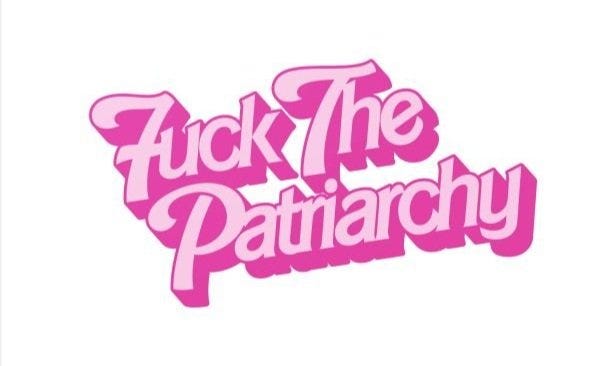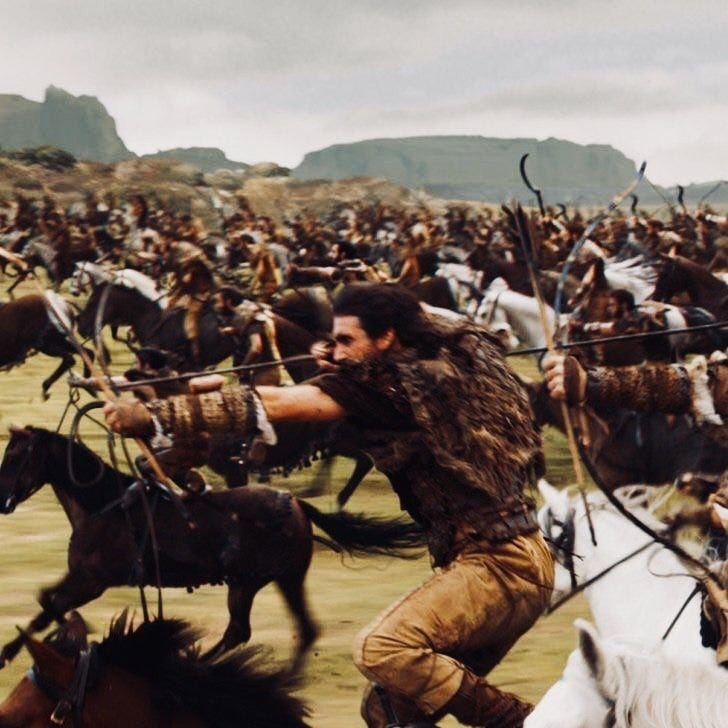The next wave of feminism is matriarchy
Why matriarchy is the society that can truly dismantle patriarchy.
Dear siblings,
This is an updated version of a viral essay I wrote last year. It’s a solid introduction to matriarchy, and the basis of my upcoming book, which is now available for pre-order.
Feminism in the 2020s is fractured. Between the popularity of TikTok tradwives, the rapid repealing of reproductive rights in the US, and the lack of any cohesive global feminist movement, it’s fair to say mainstream feminism has reached a dead end.
For the past century, feminist movements have made incredible strides in securing women the right to vote, attend university, and assume leadership positions. In many places, women have the same rights as men on paper. But we are still far away from liberation.
The global gender gap has only closed by 4% since 2006 (staying stagnant at around 70%). It will take 131 years for the gap to be closed at current rates. One in three women still experiences some form of violence. I can go on, but progress has stalled, and it’s clear why. We still live in a patriarchy.
Mainstream feminism has been focused on giving women more legal rights and “empowerment” with the assumption that the patriarchy will go away when more of us are CEOs and presidents. But it’s clear now that the corporate feminist dream of being able to “smash”, “lean in”, or “girlboss” our way out of the patriarchy is dead. It turns out we can’t take down the patriarchy with the patriarchy.

Modern feminism has been clear on one thing: we must dismantle the patriarchy. But it’s not clear what will take its place.
It’s time for feminist thought to take a different approach. We need nothing short of a transformation of our social structures. We need matriarchy.
Matriarchy is patriarchy in reverse, but not in the way you think.
A patriarchy is a hierarchical social structure where mostly men rule over others. The etymology of the word patriarchy literally means “domination of the fathers”. In this case, the Greek word -arche means domination or rule, as in “monarch” or “archbishop”.
If the patriarchy were a shape, it would be a triangle with (rich, white, cis) men at the top and everyone else organized by how much or little power their intersecting identities give them.
Organizing people in this way creates and normalizes relationships of domination. The higher up you are in the triangle, the more power you have to dominate others. I learned from bell hooks that domination and love can never coexist. Domination only ever alienates and creates harm, whereas love nurtures and creates healing.
Seen in this way, patriarchy has much more damaging effects than “just” subjugating women. Racism and capitalism could not have existed without patriarchy. A climate crisis that results from dominating nature wouldn’t exist without patriarchy. Patriarchal systems create patriarchal values, which are at the root of all oppressive systems.
A matriarchy is a social structure with mothers and children at the center. The reality that every human being originates from a mother, that everyone was once a child, is reflected in the cultural norms of a matriarchal society.
The Greek word -arche has a second meaning: “beginning”, as in “archeology” or “archetype”. Matriarchy literally translates to “in the beginning, the mothers”. In a matriarchy, there is no top or hierarchy, only an inclusive circle where everyone’s needs are met. Matriarchal systems create matriarchal values, which are at the root of all liberated systems.
Dr. Heide Goettner-Abendroth, a founding mother of Matriarchal Studies, is a pioneer in looking at human history through a non-patriarchal lens. Her 2022 book, Matriarchal Societies of the Past and the Rise of Patriarchy, examines archeological evidence to logically argue that for most of history, humans lived in peaceful matriarchal societies.
Patriarchy is so deeply entrenched in our systems that it can be impossible to imagine an alternative. A few years ago, I read Yuval Noah Harari’s book, Sapiens, and was disappointed to find he couldn’t explain why patriarchy was the norm, even with his Ph.D. in history. At times, Harari’s hypotheses seemed to veer into dangerous naturalistic territory—that humans, specifically human men, have an innate drive to dominate others. I don’t buy that, and neither do matriarchs like Dr. Heide.
The hot take of Goettner-Abendroth’s book is that patriarchy is not natural; it’s only historical. It’s not innate to humanity, it’s only our current inheritance.
She discredits the the patriarchal belief that men are the pioneers, the heroes, the inventors of humanity, which she says is patriarchal ideology. She says that women were largely the driving force in early human evolution because they had the responsibility of raising children.
What we call the “hunter-gatherer” phase of human history, Goettner-Abendroth splits into a gradual evolution from gathering to hunting to fishing, which only progressed out of necessity.
Contrary to the myth of the “mighty male hunter” delivering regular meat feasts, gathering always provided most of the nutrition of hunter-gatherers. Women and their role and knowledge in gathering were central to the early human community.
Mothers were the first inventors, the first healers, the first developers of language, and the discoverers of fire.
Anyone who is a mother will understand the powerful urge to protect their child. It’s not hard to imagine an ancient mother going to great lengths to ensure the well-being of her children, memorizing an encyclopedia’s worth of plant knowledge, and inventing medicines that would bring relief to her sick little ones.
Ancient human spirituality was based on the Earth and the cycles of birth/death/rebirth that gave nourishment and renewed life. Many of our ancestors had no way to connect sex with conception and worshipped women’s bodies (vulvas, breasts) for their life-giving abilities. These societies likely had no concept of fatherhood. Instead, men were brothers, free to be who they were, doing their part to support their communities. It was not necessary constantly have to prove your masculinity, as is normal under patriarchy.
According to Goettner-Abendroth, patriarchy emerged slowly around 10,000 years ago, in the Steppe at the crossroads of Europe and Asia. Climactic fluctuations created food scarcity, so communities were pushed away from agriculture and towards animal herding. This created herder warrior cultures and the first armed conflicts and wealth hoarding: the origins of modern patriarchy.
The violent, dominant, and mobile nature of these cultures meant that peaceful matriarchal communities stood very little chance against them.
I am fascinated by the environmental parallels between the rise and current fall of patriarchy. Patriarchal values of exploitation and domination have created the climate crisis, and if unchecked, will lead to the extinction of humanity. But just as the harsh climate of the Steppe once pushed people toward patriarchy for survival, perhaps the reverse is now true: we can only survive the climate crisis by embracing matriarchy.
Shortly before I became a mother, I wrote a manifesto for how to survive the climate crisis and create a better society. Using the principles of ecofeminism, I identified four properties of our current society that need to change if we hope to survive on the planet.
At every level of society, we would need to transform from:
Exploitation to regeneration
Dominance to love
Greed to reciprocity
Individualism to community
It was only upon reading Goettner-Abendroth’s book that I realized that the societal values of reciprocity, community, love, and regeneration were properties of a matriarchy. According to Goettner-Abendroth, a social structure is considered a matriarchy if it satisfies all four of the following conditions:
Balanced economic reciprocity without accumulation through a gift economy.
Matrilineal kinship and gender equality that prioritizes community well-being.
An egalitarian society of consensus where decisions are made with respect, trust, and care at the center.
Social norms that recognize the sacredness of life, recognizing our shared responsibility to regenerate what we use.
These correspond to the properties of reciprocity, community, love, and regeneration that I outlined in the manifesto. These solutions came intuitively to me before I had ever read anything about matriarchal societies. To me, this is evidence of their truth and innateness. Interestingly, I could only accept these ideas as within the realm of possibility after I healed my wounds and traumas.
Patriarchy does a great job of disconnecting us from each other and the sacredness of life itself. It’s about giving the least amount possible while receiving the most in return. But this is incongruent with the reciprocal laws inherent in nature.
Miki Kashtan, the founder of the Nonviolent Global Liberation Community, wrote in a recent paper that patriarchy is characteristic of a “loss of trust in the flow of life”. We have now reached a point where we are so disconnected from the flow of life that we are destroying the only life we know exists.
Matriarchy, by contrast, is about giving the most and being thankful to receive the most in return. The climate crisis would never exist if we approached nature with this mindset. A transition to matriarchy would ensure not only joy and liberation but a restoration of trust in the flow of life.
So, how do we begin? Genevieve Vaughan, a feminist researcher whose work focuses on the gift economy, says women must lead this transition.
Through motherhood and domestic work, women have already been doing free work (or giving gifts) to our society for centuries. Women and mothers understand what it means to pay close attention to the needs of another, otherwise, the human race would not have survived, and most children would not make it to adulthood.
Vaughan says, “Men have been taught that they are something other, that they have a manhood agenda of dominance and competition, and our institutions and economy have been built on that lie”. Patriarchy does not recognize men as the full human beings they are, because it fundamentally does not place life at the center of society.
A matriarchal society can look however we want, as long as it meets the four conditions of reciprocity, community, love, and regeneration.
Instead of scarcity for most and abundance for the few, we can have abundance for all. We can interrupt human impulses towards domination and exploitation by making sure everyone can get their needs met.
We can replace the transactional exchange economy with a trusting gift-giving economy. We can give leadership to councils of women elders. We can move away from hierarchical nuclear families towards mother-centered communities where everyone takes part in the rearing of children. We can replace violence with love and healing. We can breathe clean air again. We can rest.
We are at no better time in history to start thinking about societal transformation of this magnitude. Patriarchy is collapsing in real time, creating problems that are hard for even the most conditioned to ignore.
The feminist cause so far has been focused on giving women the power and authority to solve their own problems. But in creating a matriarchy, the structures that uphold power and authority in the first place disappear into irrelevance.
For all its emphasis on “winning”, no one wins in a patriarchy. Men are taught to disconnect themselves from their emotions, which creates deep pain. Even the ultra-rich, who enjoy luxury beyond measure, are disconnected from the joy of reciprocity and loving community. This is a tragedy and unenviable. The reality is that patriarchy doesn’t allow anyone to live in liberation.
We cannot solve the problems of patriarchy without imagining a clear alternative. Naming the movement we want is the first step toward creating it. Without this clarity, we risk remaining stuck in critique rather than actual liberation. By naming matriarchy as the system we want, we challenge the widespread belief that patriarchy is natural and the only option available to us. By saying “matriarchy now,” we assert that another way is not only possible but necessary. This is an act of power.
A loving, regenerative, reciprocal, and community-based society is possible and within reach. Accepting this possibility is already a huge step towards resisting the patriarchy and its myth of inevitability. If we succeed in reclaiming our ancestral birthright to matriarchy, there will once again be millennia of peace and joy on this planet.







Thank you! This is one of those pieces of writing that nudged my mind into another way of seeing the insanity of today.
From the piece:
“We have now reached a point where we are so disconnected from the flow of life that we are destroying the only life we know exists.”
And this:
“A transition to matriarchy would ensure not only joy and liberation but a restoration of trust in the flow of life.”
I looked up “life” in an online dictionary and discovered it listed as a noun.
A noun is something that can be bought or sold, taken or given, kept or lost.
I have learned, through my own journeys that life is a verb, a flowing current that can’t be bought or sold, taken or given, kept or lost, but rather ridden, like a river current.
And that ride, I’ve discovered, is always more juicy when heartfully joined with others.
A noun is like a closed fist, a stagnant, thing with definite boundaries.
A verb is like an open hand, free to give and receive, understanding giving and receiving as one motion.
It seems that a patriarchal worldview focuses more on nouns: people, places and things that can be dominated, monetized, categorized in the binary of either “this” or “that” to be used.
My sense is that a matriarchal world view focuses more on verbs, the motion or flow of life: experience, learning, healing, growth, and the non-binary “this” and “that” as part of the One Flow.
I’m here for it!
Yes, Yes, and yes! This is the direction and the voice, the love we MUST embody to make a true change. We have been trying to beat patriarchy at its own game!
Duped into thinking that patriarchy is the game we are only now realizing that we DO NOT WANT TO PLAY THAT GAME.
Thank you so much for your insight and your work. May your strength and clarity be instrumental in changing the game!
"But it’s clear now that the corporate feminist dream of being able to “smash”, “lean in”, or “girlboss” our way out of the patriarchy is dead. It turns out we can’t take down the patriarchy with the patriarchy." Exactly true.